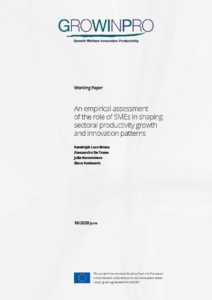Historically, SMEs have been seen as playing an essential role in facilitating industrial dynamics and contributing to employment creation and generation of value-adding across advanced economies but also increasingly in emerging and developing countries. However, post-2008 European economies have experienced a notable slowdown in productivity growth. To better understand the reasons behind the stagnant growth in Europe in the past decade, this study aims to explore industrial dynamics across all firms’ classes and ages in Europe, and their association with innovation and labour productivity. Our findings suggest that over the past decade, we observe slow business entry and exit dynamics across Europe except for ICT and professional services sectors which show a high degree of turbulence, especially in recent years. EU de-novo firms are on average larger, but they grow at a slower rate and take longer time to exit that signifies a ‘prolonged creative destruction process’. Our results also reveal that large firms still appear to play a more critical role in the value generation process, showing a clear premium gain in labour productivity as compared to their SMEs’ counterparts. Finally, we also observe some differences along the North-periphery (South-East) divide, reflected in industry dynamics figures.
An empirical assessment of the role of SMEs in shaping sectoral productivity growth and innovation patterns
Randolph Luca Bruno
Alessandro De Trane
Julia Korosteleva
Slavo Radosevic
working paper 18/2020

